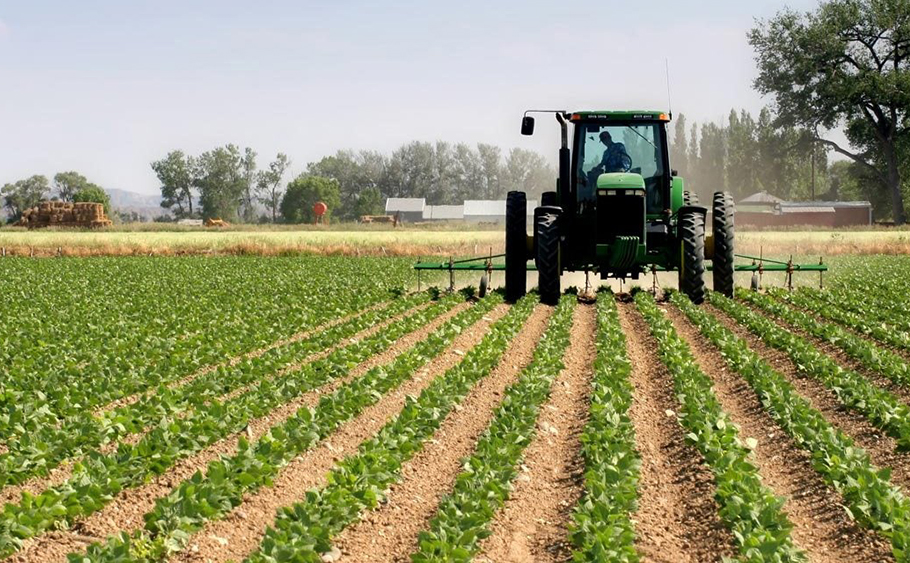In a world where the Coronavirus pandemic has caused uncertainties in capital markets, agritech startups may have become safer options for investors. Today, there are various agritech startups that have made farming more profitable, by eliminating risk exposure and delivering ROI to investors who do not have to buy land, place workers on salaries, or even burn cash on pest control and management.
These agritech startups have reinvented the way farm business is operated, hence, making more Nigerians – most especially blue-collar workers –to weigh their investment options and consider becoming digital farmers.
The following are five selected agritech startups that offer high yield investment opportunities through internet/mobile app-farming.
-
Groupfarma
This agrictech startup was founded by Niyi Oguntade. It is an initiative of Timesellers Limited. Groupfarma focuses on tubers, small ruminate, vegetables, poultry, and rice farms. The investment options offered by Groupfarma have various returns on investment, falling between 20% and 28%, with farming cycles from 6 months and above.
READ MORE: COVID-19: How your business can provide superior customer service despite lockdown
The capital required for investment is at least N50,000 per unit and the farm is covered by Leadway Assurance. Groupfarma has farms located in Ogun, Oyo, and Kaduna states. The company partners with the Nigerian Agricultural Insurance Corporation.
2. Farmsponsor
The firm is co-founded by Bill Kenneths and Akpa Chike. Farmsponsor leverages on technology to bridge the gap between interested investors and the farmers. It mainly focusses on poultry farming and offers investors assurance of 15% on 12-week cycles.
The start-up opens its farm to investors who are willing to invest from N100,000 to as much as N1 million. The investment firm also offers investors the opportunity to save their cash with vestwallet for upcoming cycles. Farmsponsor is also insured by Leadway Assurance and the Nigerian Agricultural Insurance Corporation.
READ MORE: Dangote: The King cement maker moving against all odds
3. Requid
Felix Imafidon is the founder of the marketplace, Requid, which won the maiden edition of the Nigerian Stock Exchange X-Kathon competition. The agric investment platform operates with a twist, as it offers investors the option of liquidating (selling) at any time if an investor cannot wait till the end of their cycles. Note that the cycles are usually between 3 to 12 months.
The company also has the lowest capital investment among the selected agric-tech startups. Interested investors can invest as low as N5000 in investment opportunities aggregated by Requid, which include rice, goat, pig, cowper, cashew nuts, fish, yam, and poultry farms. Surprisingly, Requid offers as high as 60% cumulative return on investments annually.
READ MORE: Robots controlling spread of virus: A potential game changer
4. Thrive Agric
The agritech startup was co-founded by Ayodeji Arikawe and Uka Eje in 2016. Thrive Agric has farms in Oyo and Kano. Investors are allowed to invest from as low as N10,000 to as much as N85,000, depending on the investor’s preferred crop. Returns on investment fall between 12% and 20%, depending on the level of investment.
Thrive Agric manages both poultry and rice farms, which are insured by Leadway Assurance.
5. Farmcrowdy
This list will not be complete without mentioning this agritech startup. Farmcrowdy is a household name in the agric investment space. It was co-founded by Onyeka Akumah, Akindele Phillips, Tope Omotolani, Christopher Abiodun, and Ifeanyi Anazodo four years ago to empower farmers and help investors earn profits without having to lift a shovel.
(READ MORE: Covid-19: Nigeria risks supply chain bottleneck, loss of N2.27 trillion in trade)
Farmcrowdy offers a variety of investment options to investors, ranging from maize farms to rice, potatoes, fish, cassava, poultry, cattle, and more farms, most of which are located in Kaduna, Oyo, Ogun, Niger State, and Lagos states. These farms are insured by Leadway Assurance.
Capital for investment falls between N20,000 and N60,000 per unit, with ROI ranging from 7% to as high as 44% depending on the investor’s farm choice. Farmcrowdy’s farm cycle runs between 3 and 24 months.
Why you should invest in agric
Nigeria is gradually moving closer towards experiencing an agrictech boom, as food security within the country is still low. The population explosion has further increased the value of agric businesses.
With a population of over 190 million, Nigerian farmers are in need of more investments to meet the local demand for agricultural production as well as exportation needs. Not only is there a demand, the land is readily available, considering that out of 82 million hectares of Nigeria’s arable land only about 32 to 34 million hectares are cultivated.
(READ MORE: Covid-19 Update in Nigeria)
Following the border closure by President Muhammadu Buhari to support domestic farming, these hectares are expected to drastically decline in number in the long run. Ongoing efforts by the government to diversify the economy from oil dependence will also help in this regard. This is already paying off, considering that agriculture was one of the key drivers of the non-oil sector’s contribution to Nigeria’s GDP, growing by 2.28% in Q3 2019.
However, there is a warning sign
Note that the agritech investment market is still very much under-regulated, even as the Securities and Exchange Commission (SEC) has warned interested investors must carry out due diligence before patronising any agritech platform. Part of this due diligence is to contact SEC after discussion with the investment platforms.
